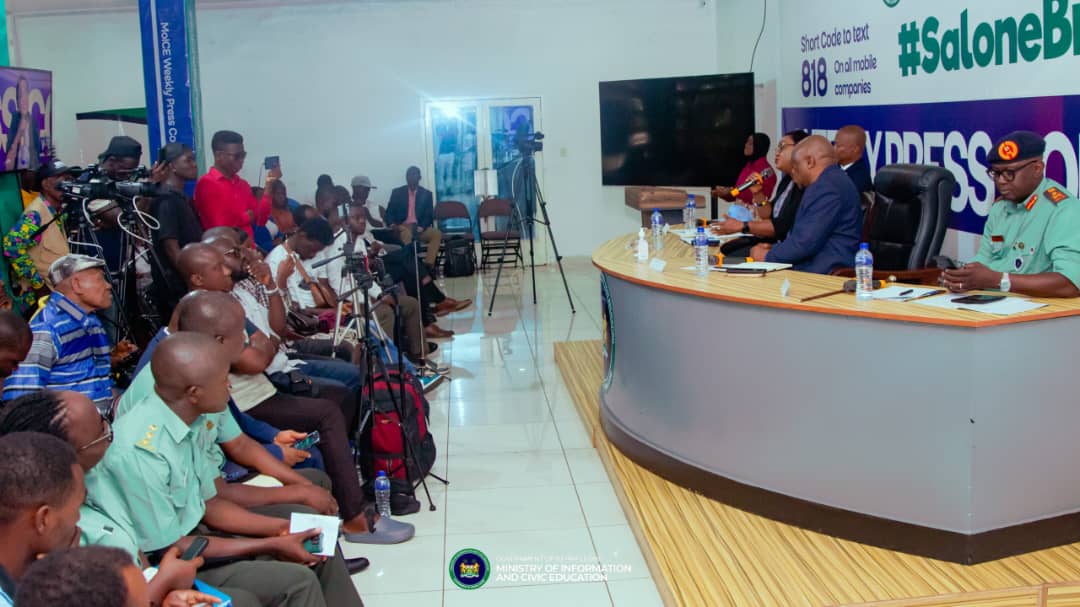By Marian Magdalene Bangura, Strategic Communication Unit – Ministry of Information and Civic Education
The Managing Director of the National Tourist Board, Fatmata Mida Carew, has issued a clarion call for citizens to assume greater civic responsibility in safeguarding Sierra Leone’s tourism sites, emphasizing that the success of the sector hinged on local ownership and environmental stewardship.
Speaking at the Ministry of Information and Civic Education’s weekly press briefing, Madam Carew stated that tourism goes beyond economic gains, it is a civic duty. “Tourism is more than an economic opportunity, it is a civic responsibility,” she asserted.
She expressed deep concern over the deteriorating conditions of public beaches, citing open defecation, littering, and indiscriminate dumping, especially during the rainy season, as major threats to the country’s image and tourism potential.
“Our beaches are littered with human waste, old suitcases, sofas, mattresses, and plastics.
These conditions do not reflect the beauty and potential of Sierra Leone’s coastline,” Madam Carew lamented. “I appeal to all citizens, homeowners, businesses, and communities, to take full responsibility for managing waste and to stop dumping garbage in public spaces.”
Despite government spending close to Le 40,000 weekly to clean the beaches, she noted that public negligence continues to undermine these efforts and tarnish the nation’s tourism image.
She highlighted a significant achievement, the recent recognition of the Gola Forest-Tiwai Complex as a UNESCO World Heritage Site, describing it as a milestone with great potential to enhance international tourism to Sierra Leone.
“But our ability to attract and retain tourists depended heavily on how well we managed our local environment,” she added.
Addressing the growing challenge of seaweed along the coastline, Madam Carew explained that the Tourist Board, in partnership with relevant authorities, had begun studying the potential economic uses of seaweed and was developing a national sea management strategy to address its impacts.
She further outlined other environmental threats to tourism, including illegal sand mining and deforestation, which she said endangered the country’s natural heritage and sustainable growth.
“These challenges threaten both our environment and the economy. That is why we are collaborating with stakeholders to access climate financing and invest in resilient tourism infrastructure,” she explained.
Madam Carew concluded by urging every citizen to take personal responsibility for preserving national assets, reiterating that sustainable tourism could only thrive if Sierra Leoneans embraced civic responsibility.
“Tourism in Sierra Leone could flourish, but only if citizens understood and embraced their role in preserving and promoting the country’s natural and cultural assets,” she emphasized. “The call is clear, civic responsibility begins with each of us.”













